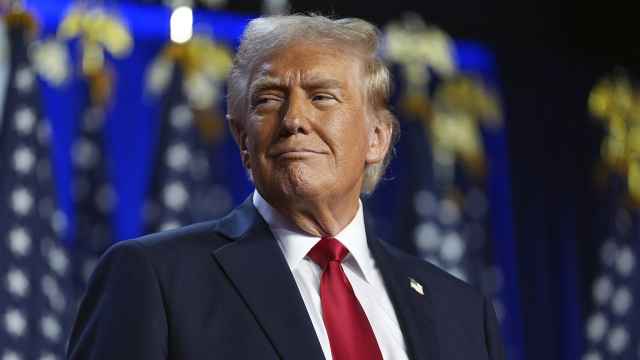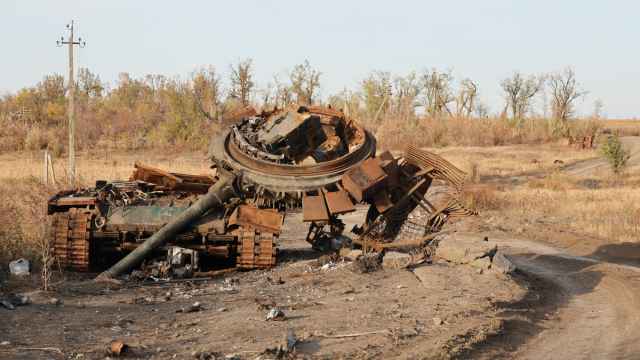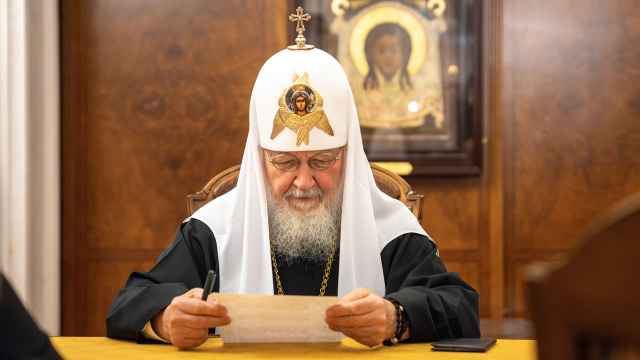The Russian authorities’ decision to arrest Wall Street Journal reporter Evan Gershkovich on spying charges came under intense scrutiny Friday, with speculation over why the Kremlin decided to take a step that was not only provocative but has no analogy in post-Soviet Russia.
As the dust settled on Gershkovich’s detention on Thursday in the Ural Mountains city of Yekaterinburg, the event looked set to go down as a milestone in the deterioration of already abysmal relations between Moscow and Western capitals.
Few seem to take at face value the spying allegations against a reporter who has lived in Russia for six years and has repeatedly received official accreditation from the Russian Foreign Ministry.
While some believe the Kremlin has an eye on a future prisoner exchange with the United States, others suggested Gershkovich’s arrest could be designed to intimidate foreign reporters, a way to settle scores for limits placed on Russian journalists in the U.S. or just a deliberate attempt to antagonize Washington.
Either way, it appeared increasingly clear that the orders for Gershkovich’s arrest came from the highest level in Moscow.
A senior Russian government official who previously worked in the security services told The Moscow Times that military counterintelligence officers from the Federal Security Service (FSB) flew from Moscow to Yekaterinburg to detain Gershkovich.
“This is a high-profile case, so it was dealt with by the FSB’s military counter-intelligence department. Moscow operatives have much more experience in such cases than their regional counterparts,” the official said.
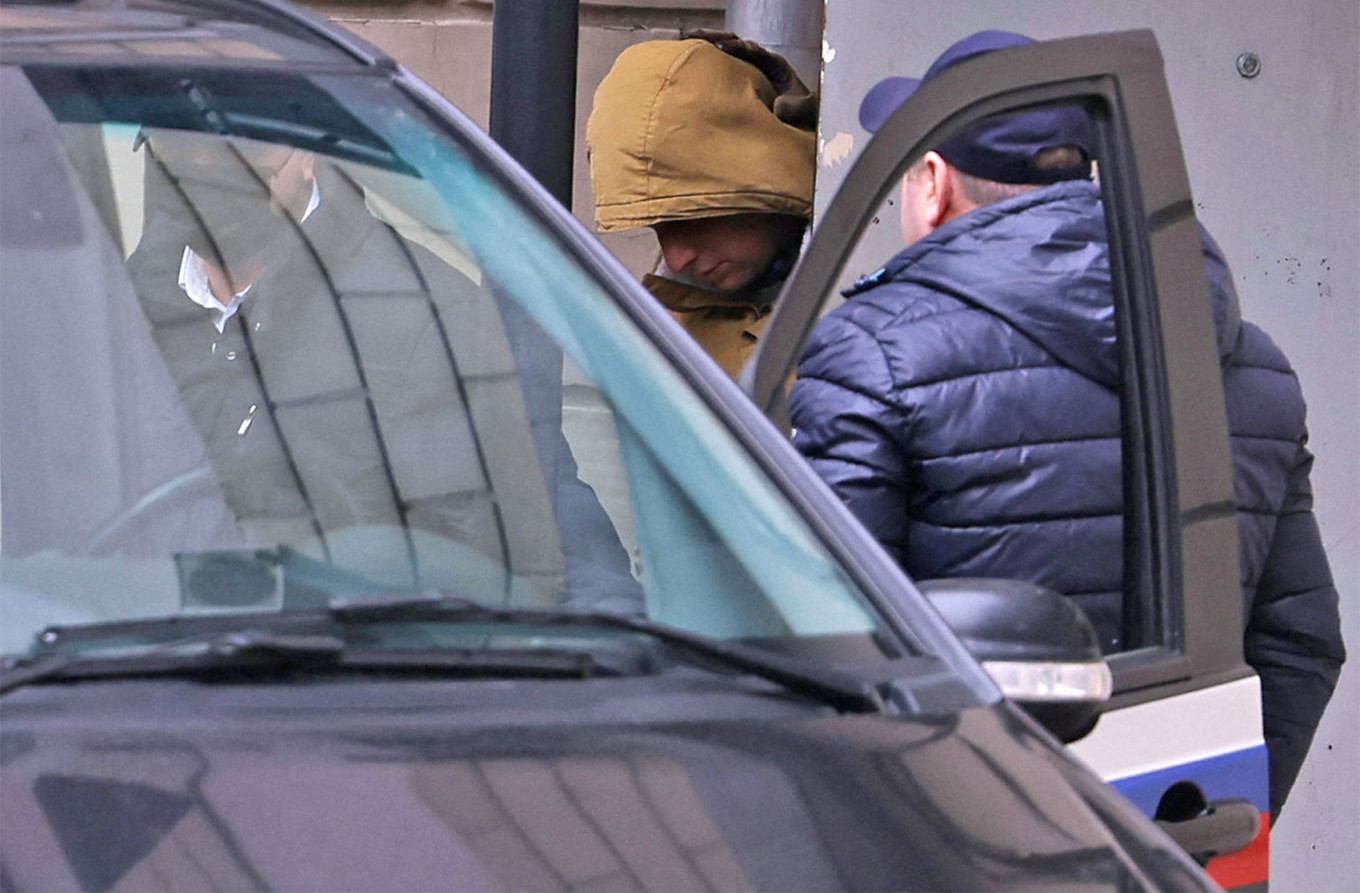
A serving Kremlin official confirmed to The Moscow Times that the FSB’s military counter-intelligence department was handling the case.
The news of the arrest was quickly met with statements from senior Russian officials asserting Gershkovich’s guilt.
President Vladimir Putin’s spokesperson Dmitry Peskov said Thursday that Gershkovich was caught “red-handed,” while Foreign Ministry spokesperson Maria Zakharova said his activities in Yekaterinburg did not bear “any relation to journalism.”
Some even drew attention to the van in which Gershkovich was delivered to the Moscow courtroom as evidence of the “demonstrative” nature of the case.
"Look at the van. The [Russian] tricolor is not an accident or coincidence, but a deliberate choice by the FSB," a Kremlin official told The Moscow Times.
Some quickly concluded that the Kremlin had ordered the detention of Gershkovich in order to exchange him for Russians held in Western jails.
“It appears that they have taken a hostage,” tweeted R.Politik, the analysis firm run by Russian political expert Tatiana Stanovaya, shortly after news of Gershkovich’s detention was first reported.
Speculation about those who the Kremlin might be seeking to extract from Western jails has centered on Maria Mayer and Ludwig Gisch, alleged Russian deep-cover spies arrested in Slovenia in December, and Sergei Cherkasov, an alleged Russian agent charged earlier this month in the United States.
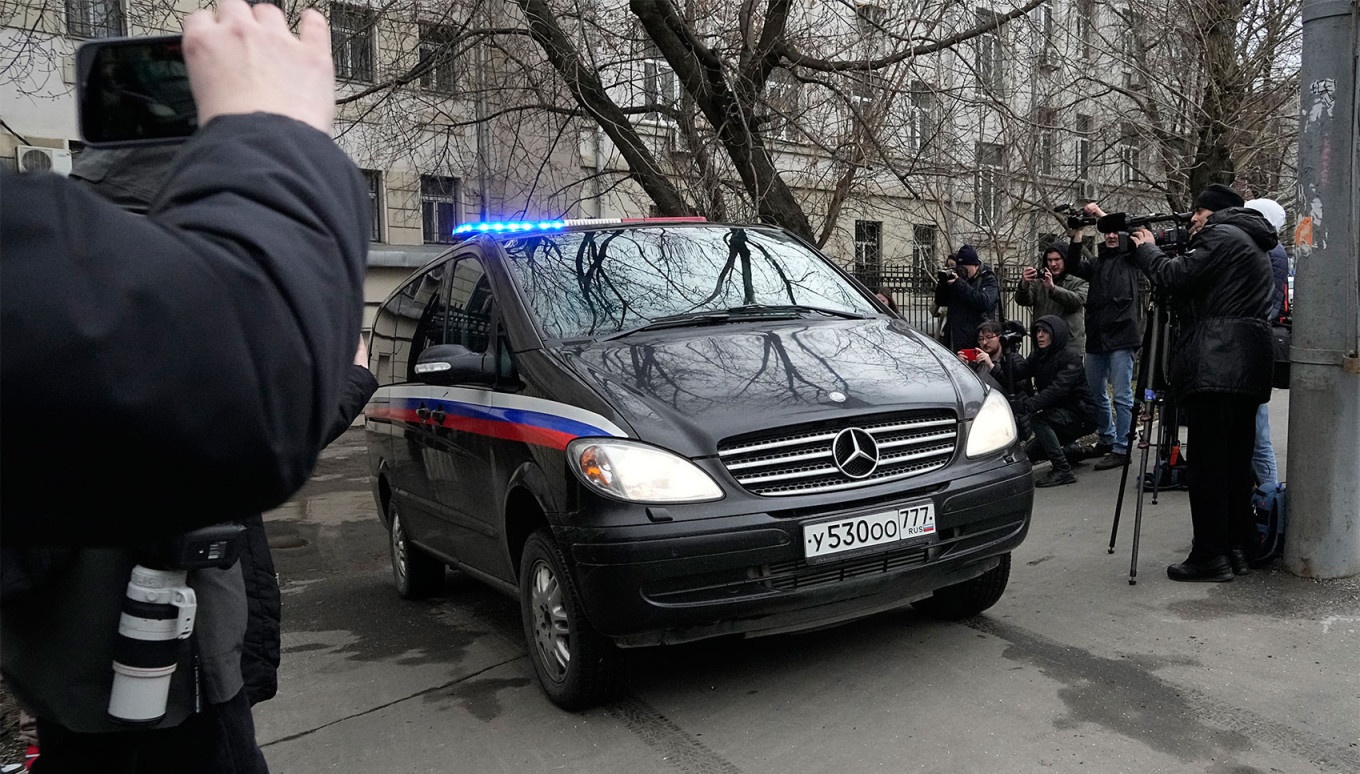
It would not be the first time high-profile arrests of foreigners in Russia appear designed to increase the Kremlin’s leverage.
Last year, Washington released notorious Russian arms dealer Viktor Bout, who was serving a prison sentence in the U.S., in exchange for American basketball star Brittney Griner who was convicted on drug charges in Russia.
“I think it's a response to the [arrest of the] couple in Slovenia,” a former high-ranking Kremlin official told The Moscow Times when asked about Gershkovich.
Others suggested that the arrest of Gershkovich could be the Kremlin sending a signal to foreign reporters in Russia who — unlike their independent Russian counterparts — have largely been allowed to work freely since the start of the war.
There was also speculation that it could be the Kremlin’s response to what it sees as restrictions placed on Russian reporters working in Western countries, or even to the growing U.S. military support for Ukraine.
“It's a message in the style of ‘your guys don't have a damn thing to be doing here’," another Kremlin official told The Moscow Times on Friday.
The last known case of a foreign reporter being accused of spying in Russia was in 1986 when Nicholas Daniloff, a U.S. reporter, was arrested by the Soviet government in retaliation for the arrest of a Soviet spy in the United States. He was allowed to leave the Soviet Union several weeks later.
While there is no blueprint for a possible swap between the U.S. and Russia, previous such exchanges have only taken place once the prisoner in Russia has been formally convicted — a process that could take months or even years.
Few doubt that the arrest of Gershkovich is likely to be another major blow to relations between Washington and Moscow.
“This undoubtedly brings Russia and the United States' relationship to a new level of confrontation,” tweeted analyst Stanovaya’s R.Politik.
U.S. officials immediately condemned the Kremlin over the incident.
Asked about Gershkovich’s arrest on Friday, U.S. President Joe Biden said: “Let him go. There’s a process.”
And, in an editorial, the WSJ said the arrest of its journalist meant that the U.S. should take a firmer line with Russia.
“The Biden Administration will have to consider diplomatic and political escalation,” said the WSJ. “Expelling Russia’s ambassador to the U.S., as well as all Russian journalists working here, would be the minimum to expect.”
Peskov said Friday that there was “no reason” to expel all Russian journalists working in the United States, Interfax news agency reported.
Among the Russian officials who spoke to The Moscow Times — all of whom requested anonymity to speak freely — there appeared to be little desire for compromise.
“Let everybody go back home. And our people there [in the U.S.] will leave as well,” said one high-ranking government official.
“We are much closer to war, so we have to reduce the number of contacts.”
A Message from The Moscow Times:
Dear readers,
We are facing unprecedented challenges. Russia's Prosecutor General's Office has designated The Moscow Times as an "undesirable" organization, criminalizing our work and putting our staff at risk of prosecution. This follows our earlier unjust labeling as a "foreign agent."
These actions are direct attempts to silence independent journalism in Russia. The authorities claim our work "discredits the decisions of the Russian leadership." We see things differently: we strive to provide accurate, unbiased reporting on Russia.
We, the journalists of The Moscow Times, refuse to be silenced. But to continue our work, we need your help.
Your support, no matter how small, makes a world of difference. If you can, please support us monthly starting from just $2. It's quick to set up, and every contribution makes a significant impact.
By supporting The Moscow Times, you're defending open, independent journalism in the face of repression. Thank you for standing with us.
Remind me later.




